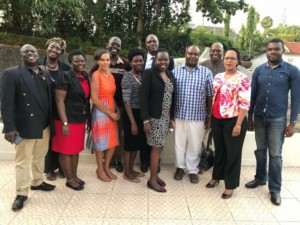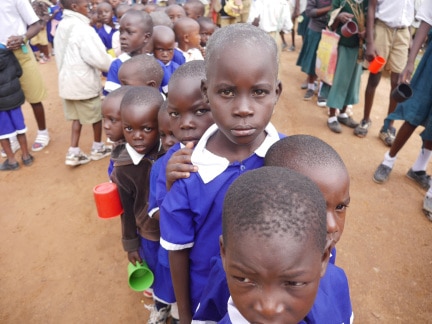Rotary Unifies Communities through Economic Development
Rotary is helping build economic and community development around the world, but especially in Africa where Rotary clubs close economic disparities and social incoherence caused by unequal distribution and lack of accessibility to resources. For instance, the United Nations established the Regional Service Centre Entebbe, Uganda, in 2010 as an epicenter for launching UN missions into Central Africa. This permanent UN Center brought thousands of military and service personnel families into the city, but the economic boom was only distributed along lines of social class and failed to “trickle down” to the poorest residents. Local leaders decided to charter a new Rotary Club in Entebbe to tackle this disparity. This new Rotary club upgraded sanitation infrastructure in the only medical health center in the area that serves nearly 600,000 villagers who can’t afford private health care. The Rotary Club of Entebbe also rehabilitated a major water well in a project that led to a 40% increase in clean water availability to villagers. Read The Original Story

Some of the members of the Rotary Club of Entebbe pictured with members of the Rotary Club of Muyenga.
The island of Ukerew in Lake Victoria is located south of Entebbe. This remote island in Tanzania is only accessible by an over three-hour ferry ride from the mainland city of Mwanza. Most of the remote island’s 350,000 residents are poor farmers and fisherman, so they do not benefit from a growing economy on the mainland. As a result of this economic disparity caused by regional inequities, the children on the island must walk long distances to get to school, often on empty stomachs. And there is no guarantee of a meal, even when they return home after school.
Rotarians recognized the need for service so they teamed with the Rotary Club of Nansio in Tanzania, to bridge this “food gap” by establishing an environmentally sustainable way to feed school children on the island. This program now helps feed around 1,400 students with food they grow and cultivate themselves in a school garden and tree nursery. In fact, the project was so successful the sale of excess produce provided funds to buy pencils, rubber, paper, and soap.

Children wait patiently in line for a nutritional meal provided by a sustainable Rotary initiative that provides not only food, but essential school supplies.
“On behalf of my students, I thank Rotary,” says Headmaster, Lucas Mtani. “My students now receive breakfast three times a week, I get good attendance and have a bit of money to buy essential items for the school. When these children grow up they will remember you.” Read The Original Story
